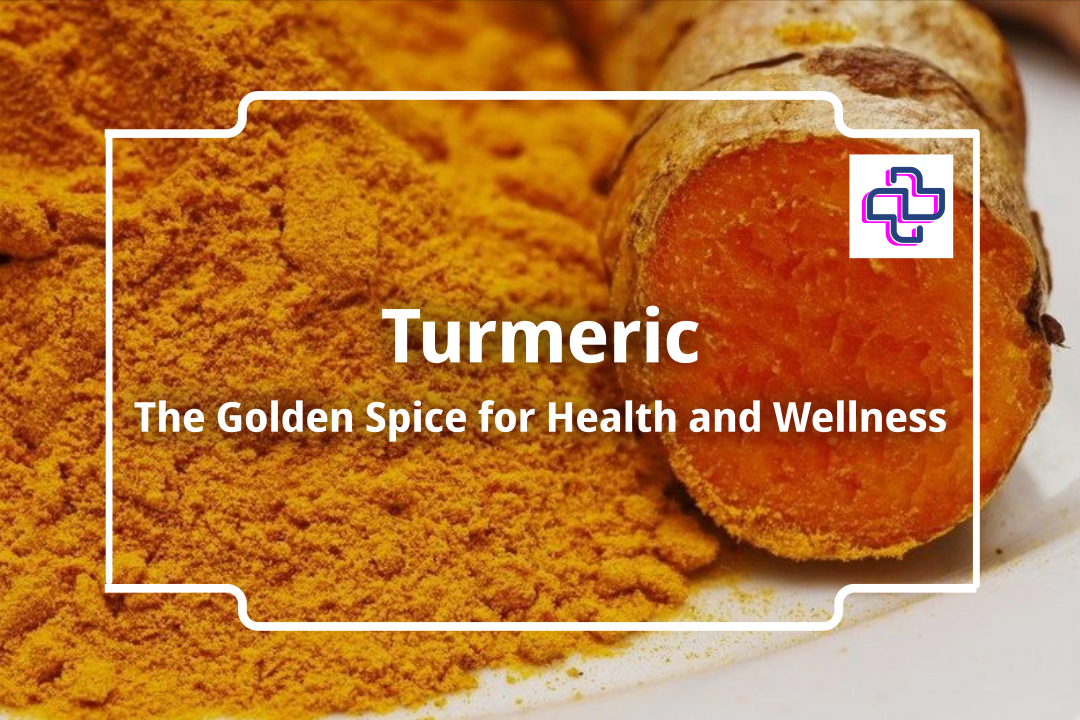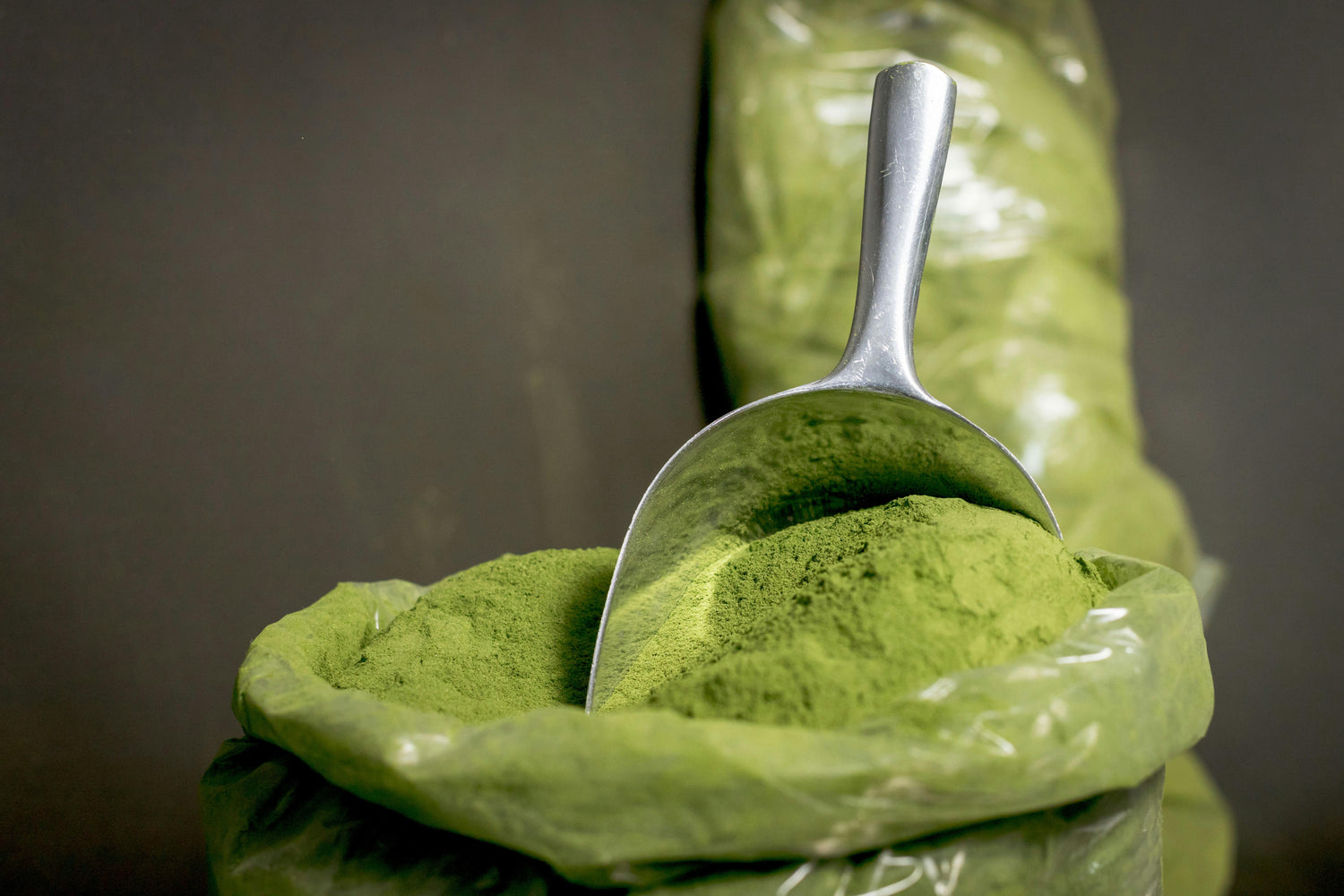
Turmeric: The Golden Spice for Health and Wellness
Share
Turmeric: The Golden Spice for Health and Wellness
Introduction
Turmeric, a vibrant yellow spice derived from the root of the Curcuma longa plant, has been utilized for thousands of years in traditional medicine, particularly in Ayurveda and Traditional Chinese Medicine. Known for its distinct flavor and color, turmeric is a staple in many culinary dishes, especially in Indian cuisine. However, its health benefits extend far beyond just seasoning food. Turmeric is celebrated for its powerful antioxidant and anti-inflammatory properties, making it a popular supplement in the world of natural health.
Nutritional Profile of Turmeric
Turmeric is rich in bioactive compounds, with the most notable being curcumin, which is responsible for many of its health benefits. Here’s a look at the nutritional profile of turmeric per 100 grams:
| Nutrient | Amount per 100g |
|---|---|
| Calories | 312 |
| Protein | 9.7 grams |
| Carbohydrates | 67.1 grams |
| Fiber | 22.7 grams |
| Fat | 3.3 grams |
In addition to these macronutrients, turmeric contains a variety of vitamins and minerals that are vital for overall health:
- Vitamin C: Supports immune function and skin health.
- Vitamin B6: Important for brain health and metabolism.
- Manganese: Essential for bone formation and metabolism.
- Iron: Crucial for transporting oxygen in the blood.
Antioxidant Levels Comparison
Turmeric is renowned for its high antioxidant content. Below is a graph comparing the antioxidant levels (ORAC values) of turmeric with other powerful antioxidants, including Astaxanthin, Lion's Mane, Chaga, Reishi, Moringa, CoQ10, and 5-HTP. This comparison highlights turmeric's antioxidant potency in relation to these other superfoods.

Graph: Antioxidant Levels in Turmeric Compared to Other Antioxidants
Health Benefits of Turmeric
1. Powerful Anti-Inflammatory Properties
Curcumin in turmeric has strong anti-inflammatory effects that can help reduce inflammation in the body. Chronic inflammation is linked to various health issues, including heart disease, cancer, and neurodegenerative diseases. Regular consumption of turmeric may aid in managing inflammation and supporting overall health.
Research Insight: A study published in the Journal of Medicinal Food highlighted curcumin's effectiveness in reducing inflammation markers in individuals suffering from arthritis. This makes turmeric a beneficial supplement for those seeking relief from chronic inflammation.
2. Antioxidant Effects
Turmeric is known for its potent antioxidant properties. Antioxidants help neutralize free radicals, protecting the body from oxidative stress that can lead to chronic diseases. Curcumin is a strong antioxidant that can help combat the damaging effects of free radicals, thus promoting overall wellness.
Graphical Representation: Below is a table showing the ORAC (Oxygen Radical Absorbance Capacity) values for turmeric compared to other antioxidants.
| Antioxidant | ORAC Value (per 100g) |
|---|---|
| Turmeric | 127,068 |
| Astaxanthin | 200,000 |
| Lion's Mane | 23,000 |
| Chaga | 57,000 |
| Reishi | 14,000 |
| Moringa | 157,000 |
| CoQ10 | 4,000 |
| 5-HTP | 1,000 |
This table clearly shows the high ORAC value of turmeric, signifying its strong antioxidant capabilities.
3. Brain Health Support
Studies suggest that curcumin may increase levels of Brain-Derived Neurotrophic Factor (BDNF), a protein that supports the survival of neurons and promotes brain health. Higher levels of BDNF are linked to improved memory and cognitive function, potentially lowering the risk of neurodegenerative diseases.
Research Insight: A study published in Frontiers in Aging Neuroscience found that curcumin supplementation significantly improved memory and cognitive performance in elderly subjects, suggesting its potential as a protective agent against age-related cognitive decline.
4. Heart Health
Turmeric may contribute to heart health by improving endothelial function, which is crucial for maintaining healthy blood vessels. Its anti-inflammatory and antioxidant properties also play a role in reducing the risk of heart disease.
Research Insight: According to a meta-analysis in the Journal of Clinical Lipidology, curcumin supplementation was associated with significant reductions in total cholesterol and LDL cholesterol levels, supporting cardiovascular health.
5. Digestive Health
Turmeric has been traditionally used to aid digestion. It may
5. Digestive Health
Turmeric has been traditionally used to aid digestion. It may help stimulate bile production and improve gut health, making it beneficial for individuals with digestive issues. By promoting healthy gut bacteria, turmeric may aid in nutrient absorption and enhance the digestive process.
Graphical Insight: A table below shows the digestive health benefits of turmeric:
| Benefit | Description |
|---|---|
| Stimulates Bile Production | Enhances digestion by increasing bile flow from the liver. |
| Anti-Inflammatory Properties | Helps reduce gastrointestinal inflammation. |
| Gut Microbiome Support | Promotes healthy gut bacteria, improving overall gut health. |
6. Skin Health
The antioxidant properties of turmeric also extend to skin health. Curcumin may help reduce acne, lighten scars, and improve skin complexion. It is commonly used in cosmetic formulations for its healing and anti-inflammatory effects.
Research Insight: A study in the Journal of Cosmetic Dermatology showed that topical application of curcumin significantly improved skin elasticity and reduced signs of aging.
How to Use Turmeric
Incorporating turmeric into your diet can be done in various ways:
- Cooking: Use turmeric powder in curries, soups, or stir-fries for added flavor and health benefits.
- Golden Milk: Make a soothing drink by mixing turmeric with milk (dairy or plant-based), sweetener, and spices like cinnamon and black pepper.
- Supplements: Consider turmeric or curcumin supplements for a concentrated dose, especially if you're looking for specific health benefits.
Frequently Asked Questions (Q&A)
1. Is turmeric safe to consume daily?
Yes, turmeric is generally safe for daily consumption in culinary amounts. For supplements, it’s best to follow the recommended dosage or consult a healthcare professional.
2. Can turmeric help with joint pain?
Turmeric’s anti-inflammatory properties may help alleviate joint pain and stiffness, making it a popular choice for those with arthritis.
3. What is the best way to take turmeric for health benefits?
Incorporating turmeric into meals, drinking golden milk, or taking supplements are all effective ways to enjoy its health benefits. Adding black pepper can enhance curcumin absorption.
4. Are there any side effects of turmeric?
While turmeric is safe for most people, high doses may lead to gastrointestinal issues such as nausea or diarrhea. It's essential to consult a healthcare provider before starting any new supplement, especially for those with underlying health conditions or those on medication.
Conclusion
Turmeric is a powerful spice that offers a myriad of health benefits, particularly due to its active compound, curcumin. From reducing inflammation to supporting brain health, turmeric can be a valuable addition to your wellness routine. At 24Supplements, we offer high-quality turmeric supplements to help you harness the benefits of this remarkable superfood.
Remember to consult with a healthcare professional before starting any new supplement, especially if you have existing health conditions or are taking medications.
Disclaimer
This article is for informational purposes only and does not constitute medical advice. Always consult with a healthcare professional before starting any new supplement.
Additional Benefits of Turmeric
7. Weight Management
Turmeric may aid in weight management by enhancing metabolic function and promoting fat loss. Curcumin has been shown to influence the regulation of adipogenesis (the formation of fat cells) and fat metabolism.
Research Insight: A study in the Journal of Nutritional Biochemistry demonstrated that curcumin supplementation led to significant reductions in body weight and fat mass in overweight individuals, supporting its potential as a natural weight management aid.
8. Liver Health
Turmeric may support liver function by aiding in detoxification processes. The liver plays a crucial role in eliminating toxins from the body, and curcumin has been shown to enhance liver function and protect against liver damage.
Research Insight: A study in the Journal of Ethnopharmacology found that curcumin significantly reduced markers of liver damage and improved overall liver health in animal models.
Incorporating Turmeric into Your Daily Routine
Adding turmeric to your diet can be simple and enjoyable. Here are a few practical tips:
- Spice Up Your Meals: Add turmeric powder to soups, stews, and curries for a flavor boost and health benefits.
- Turmeric Smoothies: Blend turmeric powder with fruits and vegetables for a nutritious smoothie.
- Golden Milk: Mix turmeric with warm milk and spices for a comforting drink, perfect for relaxation before bed.
- Supplement Form: If you're looking for higher doses, consider taking turmeric or curcumin supplements, but consult with a healthcare provider first.
Final Thoughts
Turmeric is not just a flavorful addition to your meals; it’s a powerhouse of health benefits backed by scientific research. With its rich history in traditional medicine and modern recognition in the wellness community, turmeric is a spice that can support a variety of health needs, from reducing inflammation to enhancing cognitive function. At 24Supplements, we provide premium turmeric supplements that are formulated for optimal potency and effectiveness.
Always consult with a healthcare professional to determine the best approach for incorporating turmeric into your health regimen, especially if you are considering it for specific health conditions or in conjunction with other treatments.




























































